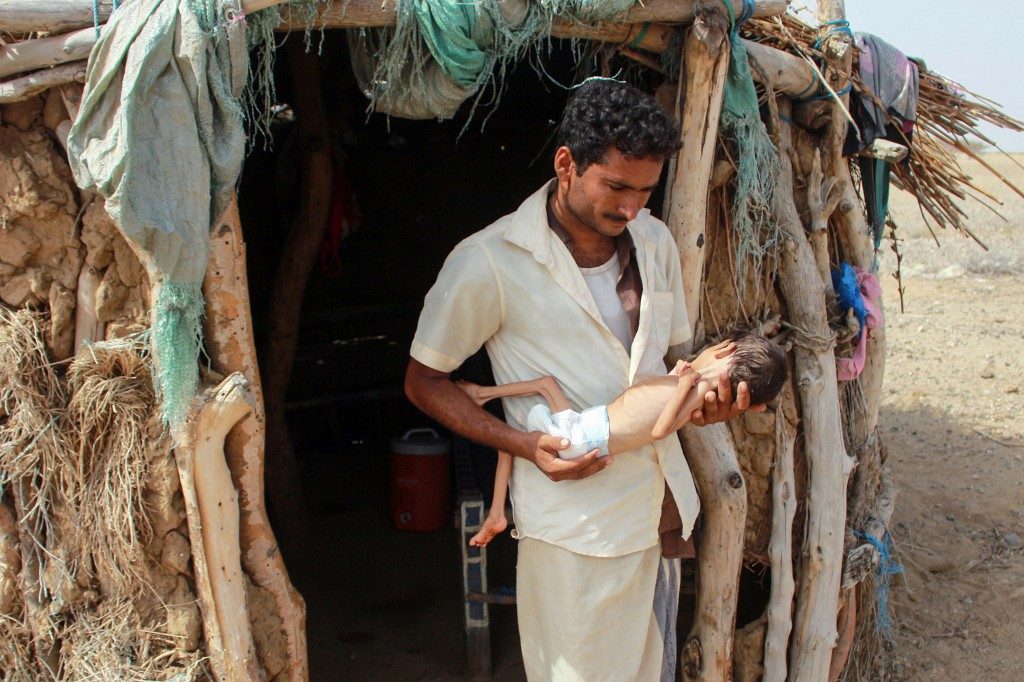SUMMARY
This is AI generated summarization, which may have errors. For context, always refer to the full article.

PARIS, France – Hunger, poor nutrition, and obesity not only present a health burden in developing countries but carry a hidden economic penalty that costs businesses up to $850 billion a year, according to a new report published on Wednesday, July 8.
Researchers said malnutrition reduces the resilience of populations to risks such as infectious disease outbreaks and extreme climate events, as well as causing a reduction in productivity and earnings.
With the coronavirus pandemic expected to drive millions more into hunger and poverty, they called for governments and businesses alike to focus on nutrition as part of recovery efforts.
“While the costs of undernutrition and overweight/obesity to societies and governments are well explored, the costs and risks to companies created by malnutrition in the workforce and the wider community have remained under the radar,” said lead researchers Laura Wellesley, a senior research fellow at Chatham House.
“We show that the costs and risks are significant and that it is in the interests of businesses to take action.”
The report, which was compiled with the Vivid Economics group, defined malnutrition as both undernutrition and overnutrition – encompassing conditions from stunting and anemia to being overweight and obese.
In developing nations where the prevalence of malnutrition is high, researchers estimated that the direct costs of productivity loss would total between $130 billion and $850 billion a year.
That is equivalent to between 0.4% and 2.9% of the combined gross domestic product of those countries.
The report extrapolated the results from modeling 19 lower- and middle-income countries in Asia, Africa, Central America, and Europe.
According to the 2020 Global Nutrition Report, around 1 in 9 people globally are hungry or undernourished, while 1 in 3 people are overweight or obese. Almost a quarter of children under 5 are stunted.
Poverty warning
Problems that once existed at opposite ends of the wealth spectrum are increasingly converging in poor and middle-income countries as populations, households, and even individuals face a “double burden” of being overweight and undernourished.
“Both obesity and undernutrition are outcomes of poor nutrition, and both should be tackled together if we’re to ease the malnutrition burden on companies and societies,” Wellesley said.
She called for efforts to reduce both problems, such as paying a fair living wage, subsidizing nutritious food for staff, providing breastfeeding support for mothers, and education on how to eat healthily.
The report stressed that action to tackle malnutrition is in businesses’ best interests.
Direct costs for companies include the reduction in productivity associated with staff ill-health and limits to workers’ physical and cognitive capacity, Wellesley said.
It also traps households into poverty, meaning they have less money to spend as consumers, thus impeding the development of a healthy workforce.
The report comes as Philip Alston, the former United Nations envoy on extreme poverty and human rights, slammed the international community for fostering a misleading narrative that global poverty is being eradicated when in fact he said it is rising.
He warned that the pandemic is expected to push hundreds of millions into unemployment and poverty, while increasing the number at risk of acute hunger by more than 250 million.
“Even before COVID-19, we squandered a decade in the fight against poverty with misplaced triumphalism blocking the very reforms that could have prevented the worst impacts of the pandemic,” he said.
Alston criticized the use of the World Bank’s international poverty line – currently $1.90 per day – as “flawed,” saying it gives a deceptively positive picture. – Rappler.com
Add a comment
How does this make you feel?
There are no comments yet. Add your comment to start the conversation.